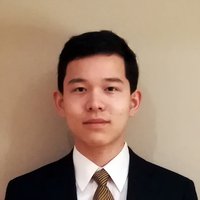Program: Physics Specialist, Mathematics Specialist, CS Minor
Year of Study: 3
Why did you decide to major in Physics? What was your inspiration?
Physics has always stood out to me as the one field that offered a deep, satisfying understanding about the real world. It’s situated right at the boundary between the fascination of theory and the fun of actually doing stuff. The questions that arise in physics generally require an even mix of both abstract insight and careful real-world experiments, which makes them doubly interesting.
What do you enjoy most about the physics program?
The freedom of choice – even at the specialist level, there’s plenty of options for the required courses, and usually plenty of leeway for topics/elective classes. I really think the physics program at UofT offers everyone the opportunity to figure out what they like and pursue their interests in more depth.
What other extra-curricular activities are you involved in during your degree?
Among a few other things, I’m quite enthusiastic about the Putnam club, which I regularly attend and occasionally run. In addition to being an exceedingly fun math competition (who a certain Richard F. once won), training for the Putnam is a great socialization opportunity and a tool to keep your problem-solving skills sharp.
What are your research interests?
To be honest, at the moment, I haven’t got a clue – and I think that’s ok! I find interesting tidbits in nearly every field I’ve bumped into, from quantum optics to algebraic number theory. Perhaps I just need a bit more time to settle into one area.
What is your favorite course and why?
PHY324 (and perhaps PHY224), by a long shot. Even though I’m deeply into theoretical math, nothing quite compares to the feeling of getting your hands dirty in the data, figuring out the inevitable mistakes in your analysis, and ending up with a final result derived from real measurements you took. Bonus points if your answer isn’t horribly off. The course is an embodiment of the unreasonable effectiveness of physics at describing the real world.
What are your future plans?
I would like to become a professor, but am also well aware of the struggle and practical issues associated with the process. I plan to apply to graduate school in both mathematics and physics, pick the best of my options, earn a PhD, and see how I feel then. (A lot can change in a few years!) If it doesn’t work out, data science or software engineering is always a good option.
Where do you see yourself in 10 years?
In an ideal world, happily as a professor doing physics! In reality, things aren’t so certain – I could end up as a software developer, a professor, an entrepreneur, or anywhere in between. (To the aspiring first- and second-years out there: this is ok! You don’t need to have your life figured out yet. Just throw yourself at anything you find interesting and see what sticks.)
Tell me something interesting about yourself.
I strive to learn as broadly as possible – I like to pick up the basics of everything from cooking, to electronics, to video production, to machining. Could I have gotten a bit farther in physics by working tirelessly to maximize my depth of knowledge? Sure. But I think true insight almost always comes from where you least expect – not from within your field, the obvious place everyone has already checked.

